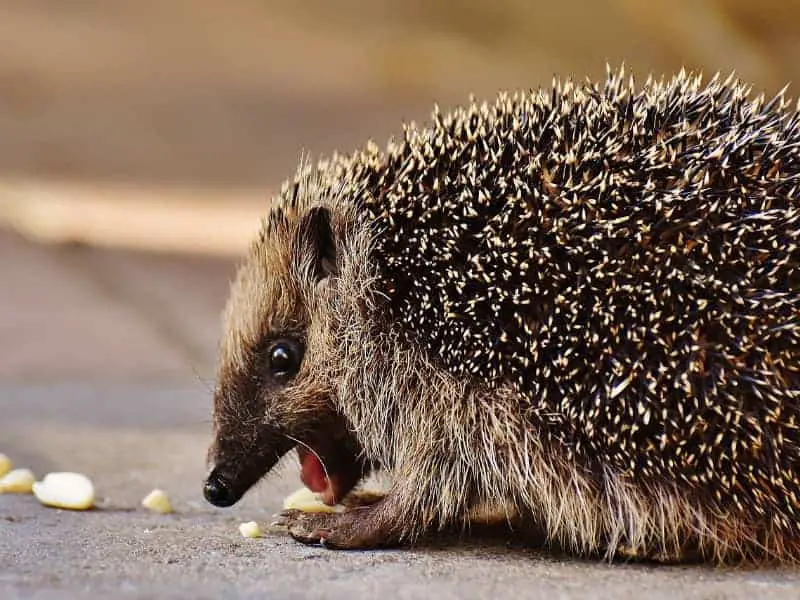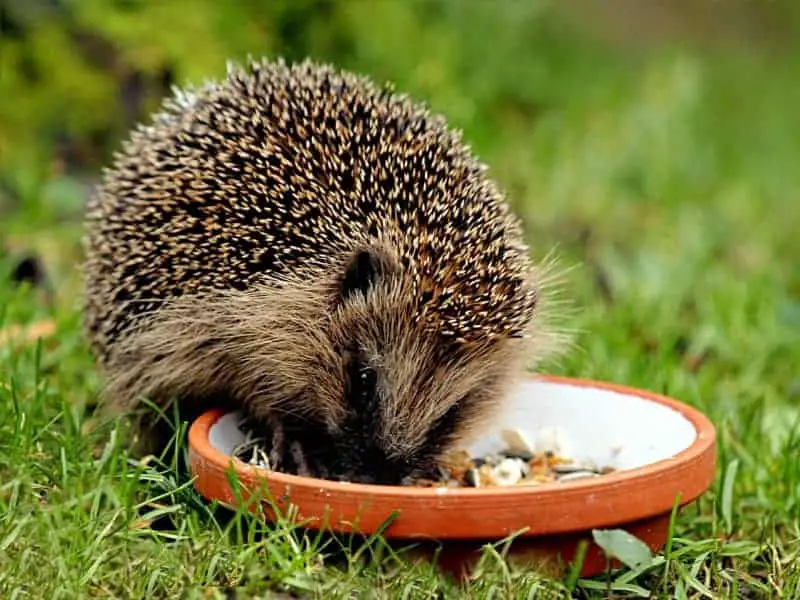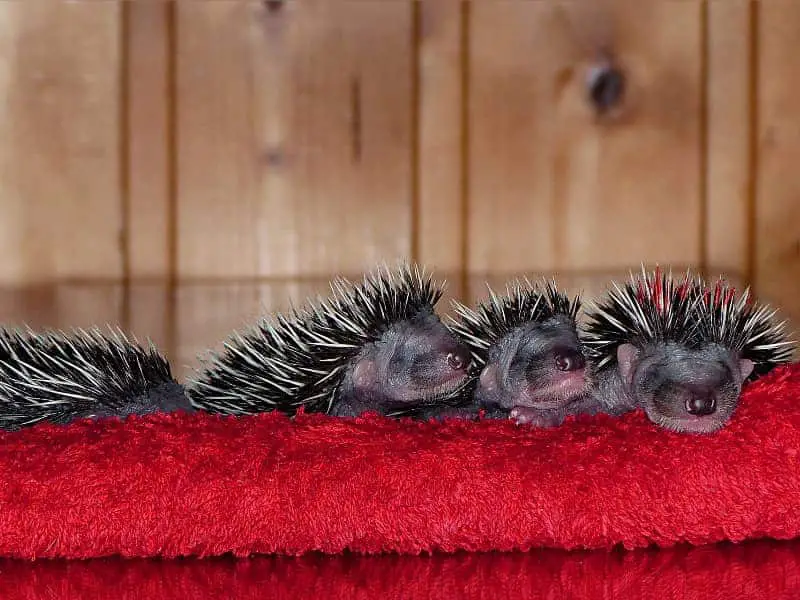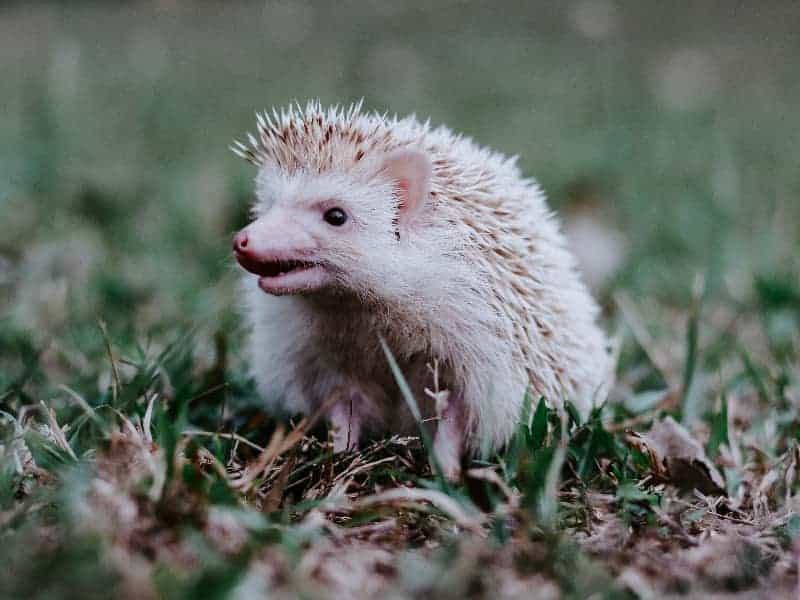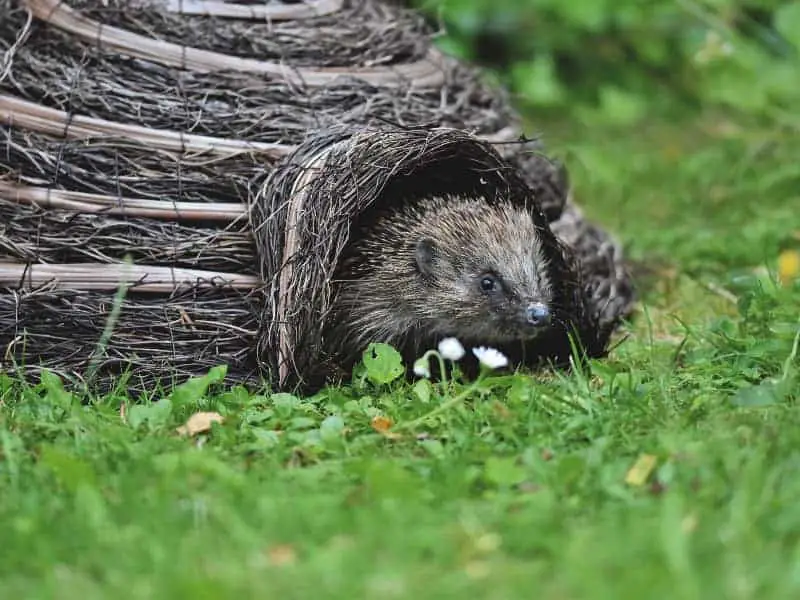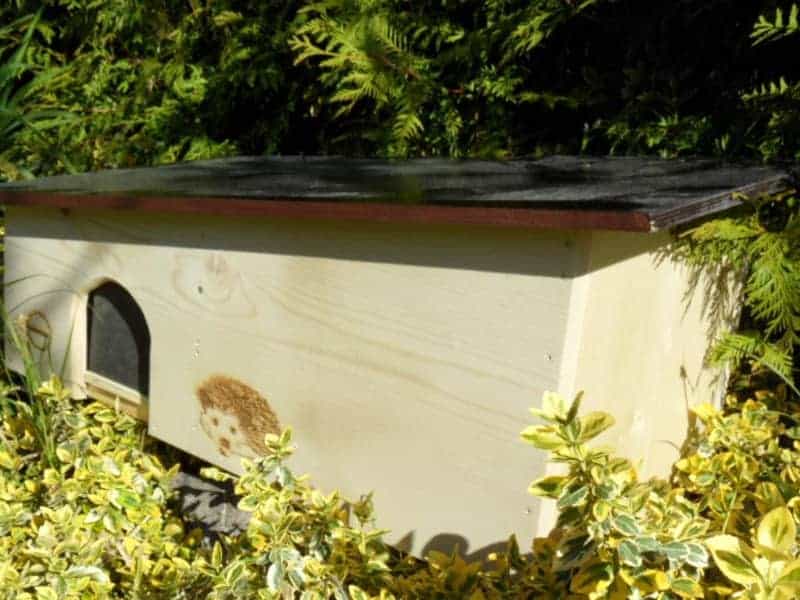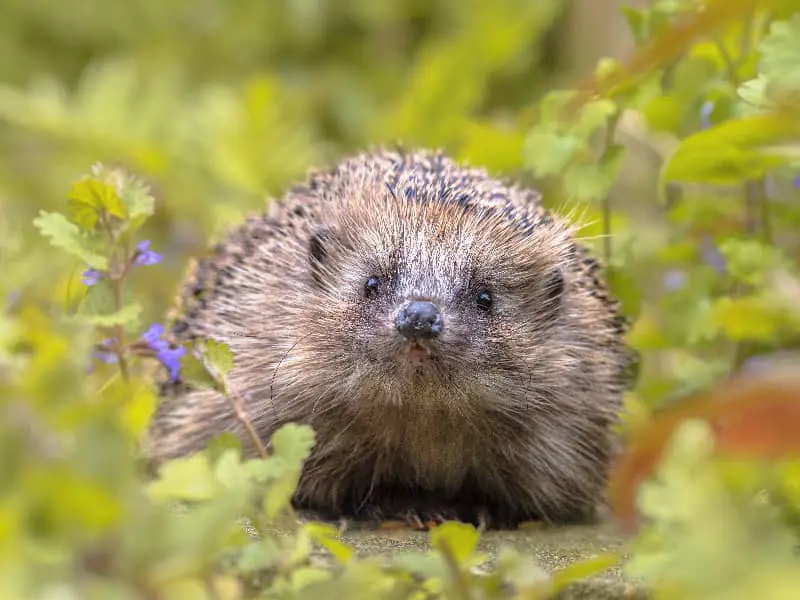
Do hedgehogs eat snakes?
The question, "Do hedgehogs eat snakes?", is not only a curious consideration, but opens the door to a fascinating world of biology and animal behavior.
Hedgehogs and snakes
Hedgehogs and snakes are both fascinating creatures that are often portrayed very differently in popular culture. While hedgehogs are seen as cute and harmless animals that frolic in gardens and forests, snakes are usually perceived as dangerous and mysterious. However, these simplistic portrayals can be misleading because both animals have complex behaviors and play important roles in their respective ecosystems.
Main goal of the article
The main goal of this article is to answer this question from a scientific perspective. We will explain both the biological basis of hedgehogs and snakes and consider their interactions and feeding behavior. This will give us a comprehensive picture of how likely it is that a hedgehog will eat a snake and vice versa.
Relevance for ecosystems
Why should we even care about this question? Aside from the natural curiosity that many of us have, the diets of animals are a key indicator of the health and stability of an ecosystem. By understanding how animals like hedgehogs and snakes interact, we can learn more about the dynamics of nature, which in turn allows us to develop better conservation strategies.
Do hedgehogs eat snakes? - The feeding behavior of hedgehogs
The feeding behavior of hedgehogs is an interesting aspect if we want to clarify the question whether hedgehogs eat snakes. Hedgehogs are usually omnivorous, but their diet varies depending on habitat and availability of food.
Insects and invertebrates
Hedgehogs are known mainly for their large appetite for insects and invertebrates. Their main diet consists of a variety of insects such as beetles, ants and worms. Their specialized teeth and ability to dig quickly allow them to easily reach their prey. They also play an important role as natural pest controllers in many ecosystems, highlighting their importance in maintaining biodiversity.
In fact, their taste for insects and invertebrates is so distinctive that they are often used as natural pest controllers. This shows how adaptable their feeding behavior is and how it can affect the stability of their habitat.
Plant food
Besides animal food, hedgehogs also consume plant matter, but to a lesser extent. Fruits, berries and sometimes even mushrooms can be part of their diet. The intake of plant food depends strongly on the season and the particular habitat. In spring and summer, when insects and invertebrates are abundant, the focus is more on animal food.
The ability to consume plant foods demonstrates the hedgehog's flexibility in its diet and how it can adapt to different ecological conditions.
Exceptions and special features
Although hedgehogs are primarily insectivores, there are also exceptions and peculiarities in their feeding behavior. Occasionally they may eat smaller vertebrates such as frogs or mice. However, this is the exception rather than the rule and usually only occurs when other food sources are scarce.
It is also worth mentioning that hedgehogs are usually nocturnal and their foraging takes place mainly under cover of darkness. Since snakes are mostly diurnal, an encounter between hedgehog and snake is rather unlikely.
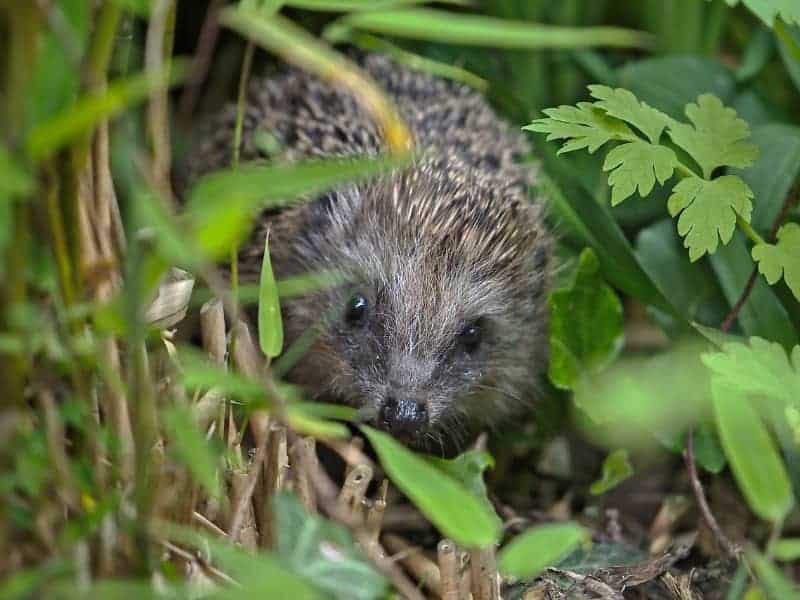
Can hedgehogs eat a snake and if so, which ones?
There are only a limited number of snake species in Central Europe, and many of them are rather rare or protected. Moreover, the probability that a hedgehog will eat a snake is quite low. Nevertheless, here is a list of snake species in Central Europe that could theoretically be eaten by a hedgehog:
- Grass snake (Natrix natrix)
- Adder (Vipera berus)
- Smooth snake (Coronella austriaca)
- Smooth snake (Coronella girondica)
- Aesculapian snake (Zamenis longissimus)
It is important to emphasize that hedgehogs usually eat insects, invertebrates, and sometimes small mammals. Snakes are not usually on their menu, mainly because the size and defensibility of many snakes would make them difficult prey.
Please note that this list is theoretical and based on the assumption that a hedgehog could eat a very small, young or weakened snake. In practice, the probability of such encounters is rather low.
Can snakes eat hedgehogs?
The possibility of snakes eating hedgehogs in Central Europe is a fascinating question. In general, snakes in Central Europe are rather small and do not have the physical requirements to successfully eat an adult hedgehog.
The hedgehog's spiny body structure provides it with natural protection that makes it difficult for snakes to see it as prey. Adders and other native snake species usually prefer smaller prey such as frogs, mice or birds.
It could theoretically happen that a snake tries to eat a very young or weakened hedgehog, but such cases would be the exception rather than the rule. Therefore, the likelihood of snakes eating hedgehogs in Central Europe is overall rather unlikely, the spines would cause them great problems.
Conclusion: Do hedgehogs eat snakes?
The question of whether hedgehogs eat snakes opens up an exciting discussion about the diets and interactions of animals in their natural habitat. After careful consideration, it can be concluded that the likelihood of such encounters in Central Europe is extremely low. Hedgehogs are primarily insectivores, occasionally feeding on smaller vertebrates and plant food.
Snakes, on the other hand, are usually unable to eat a hedgehog because its spiny body provides natural protection. Both animals play an important role in their ecosystems and have rather little overlap in their diet and habitat. Although it would be fascinating to discover such an unusual prey relationship in nature, the chances of this happening in reality are rather slim.
Nature never ceases to surprise with its diversity and complexity, but in the case of hedgehogs and snakes in Central Europe, such a dietary interaction seems rather unlikely.
Author

-
Garden animal - A life with nature
Welcome to my animal blog! My name is Dirk and I am happy to take you on my journey through the fascinating world of animals and gardening.
Born 54 years ago, I have had an insatiable curiosity for the animal world around me since childhood. Although I have moved professionally in other industries, my true passion has always been animals and nature. It is remarkable how a small garden has become such an important part of my life.
Many of my fondest memories are associated with the animals that share our home. Whether it's the curious squirrels that scurry across the trees in the morning, the colorful variety of birds that visit our feeders, or the busy bees and butterflies that pollinate our flowers, every moment with them is invaluable to me.
This blog is my contribution to share my experiences, discoveries and insights with like-minded people. Here I will share stories of unforgettable encounters with animals, give tips on gardening and creating wildlife-friendly habitats, and take you on my journeys through nature.
Thank you so much for being here!
Cordial,
Dirk aka garden animal
Last posts
- 27. February 2024PetsVeganes Hundefutter – Grün und Gesund?
- 18. January 2024ChickensOregano für Hühner
- November 27, 2023HamsterDiurnal hamsters
- November 24, 2023HamsterHamster hammock

